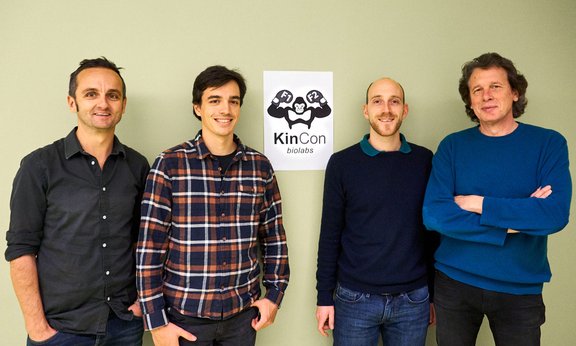KinCon-biolabs consists of four visionary scientists with a background in biochemistry, cell biology, and biotechnology. They have developed a unique and patented biosensor platform for tracking drug-driven Kinase Conformations in living cells. This technology allows them to predict the efficacy of kinase specific drugs in the cell culture model system. In recent years, kinases have become a major drug target, especially for combating cancer. So far, more than 50 kinase inhibitors have been clinically approved, mostly for cancer therapy applications. However, these kinase-targeted therapies suffer from acquired drug resistance and drug side effects. These facts motivated the scientists from Innsbruck to team-up for trying to identify and tackle the underlying mechanistic details of the drawbacks of kinase inhibition.
The mission of KinCon-biolabs for the next eighteen months is to implement their kinase-centred biosensor platform for systematic, cell-based validations of lead molecule efficacies. They have chosen a precision medicine oriented approach by targeting an assortment of commonly mutated kinases. For the future, the major goal of KinCon-biolabs is to assist pharmaceutical companies in their decision-making process, by answering the question: Which are the most promising lead molecules for efficiently inhibiting kinases harbouring patient-specific mutations?
As starting point, KinCon-biolabs will investigate a series of disease-relevant kinases which are relevant for melanoma and lung cancer development. In the future, the Scientist are excited to expand their scope to so far neglected kinase drug targets of the kinase superfamily, which contains more than 500 members. The spin-off scholarship program will help to confirm the universal utility of the KinCon biosensor platform for predicting kinase drug efficacies. This then will be the groundwork for the foundation of the biotech enterprise KinCon-biolabs.

